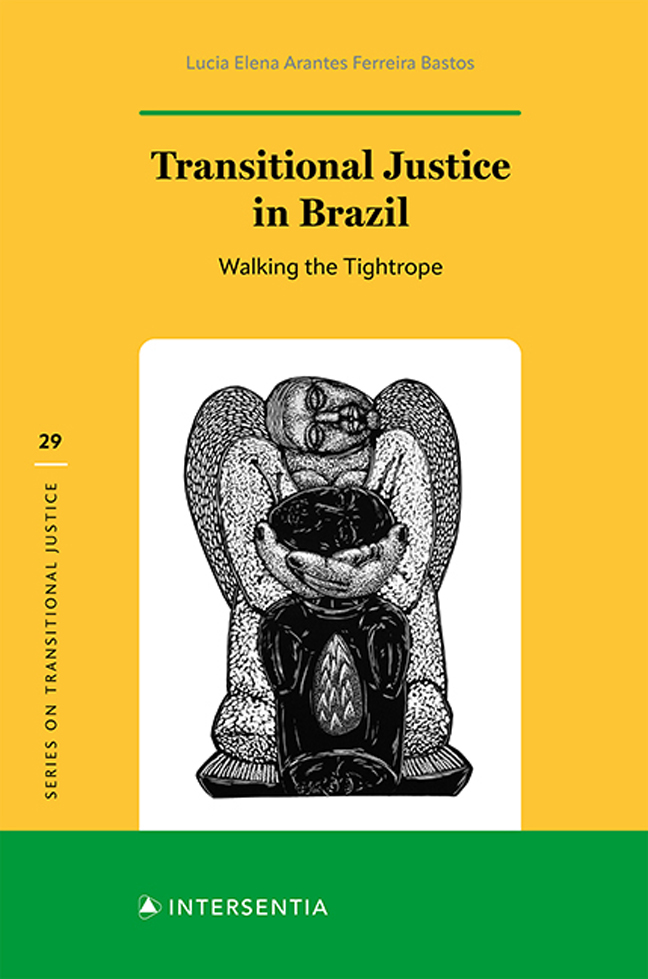Book contents
- Frontmatter
- Foreword
- Acknowledgments
- Contents
- List of Acronyms and Abbreviations
- 1 Introduction: Historical Perspectives from the Brazilian Dictatorship and Transitional Justice Measures
- Part I The Intersection Between Amnesty, the Rule of Law, and Authoritarian Legacies
- Part II Steps Towards Reparations, Accountability, and Truth
- Part III Complex Forms of Reparations, Accountability, and Truth-Seeking: Actors Beyond Agents of the State
- Bibliography
- Index
- About the Author
4 - Criminal Justice and Judicial Accountability
Published online by Cambridge University Press: 29 February 2024
- Frontmatter
- Foreword
- Acknowledgments
- Contents
- List of Acronyms and Abbreviations
- 1 Introduction: Historical Perspectives from the Brazilian Dictatorship and Transitional Justice Measures
- Part I The Intersection Between Amnesty, the Rule of Law, and Authoritarian Legacies
- Part II Steps Towards Reparations, Accountability, and Truth
- Part III Complex Forms of Reparations, Accountability, and Truth-Seeking: Actors Beyond Agents of the State
- Bibliography
- Index
- About the Author
Summary
Except for the reparations programs which assisted some of the victims, after 1985 the transition scenario in Brazil remained unchanged for more the 20 years. In fact, although victims and family members of the disappeared never ceased to discuss the topic, it was only at the beginning of 2010 that the societal debate regarding the right to truth and memory made a return, reinforcing the theory that reluctance pervades the local experience with Transitional Justice. The proof of this uncertain process is in the decisions in two cases, filed in different judicial levels, had opposite outcomes. These cases were (i) Gomes Lund et al. (Guerrilha do Araguaia) v. Brazil (the Araguaia Case), under the jurisdiction of the Inter-American Court on Human Rights (IACtHR), decided on November 24, 2010, and (ii) Allegation of Disobedience of a Fundamental Precept (Argüição de Descumprimento de Preceito Fundamental – ADFP ) no. 153, filed by the Federal Council of the Brazilian Bar Association of Brazil (Ordem dos Advogados do Brasil – OAB) in the Brazilian Federal Supreme Court (Supremo Tribunal Federal – STF), decided on April 28, 2010. The following analysis of both cases is useful to forming a broad view of the judicial pillar of Transitional Justice in the Brazilian experience.
4.1. NATIONAL TRIALS
4.1.1. THE STF’S JUDGMENT ON THE LEGALITY OF THE 1979 AMNESTY LAW: CONTINUITY WITH THE PAST
Under Brazilian law, the STF has the power to rule on the constitutionality of any statutes. In light of this authority, the Federal Council of the OAB challenged the legitimacy of the Brazilian Amnesty Law, Law no. 6,683 (1979), in a case known as ADFP no. 153. In that case, the initial petition requested that the STF declare that amnesty granted under the law should not extend to crimes committed by agents of the State against political opponents. In the Brazilian legal system, a reporting judge (or justice in the higher courts) drafts an opinion which the other members of the court either follow or reject. In ADFP no. 153, the reporting justice ruled that the Amnesty Law was in compliance with the Constitution and rejected the plaintiff’s claims, a ruling which the majority endorsed by a vote of 7 to 2.
- Type
- Chapter
- Information
- Transitional Justice in BrazilWalking the Tightrope, pp. 81 - 106Publisher: IntersentiaPrint publication year: 2023

